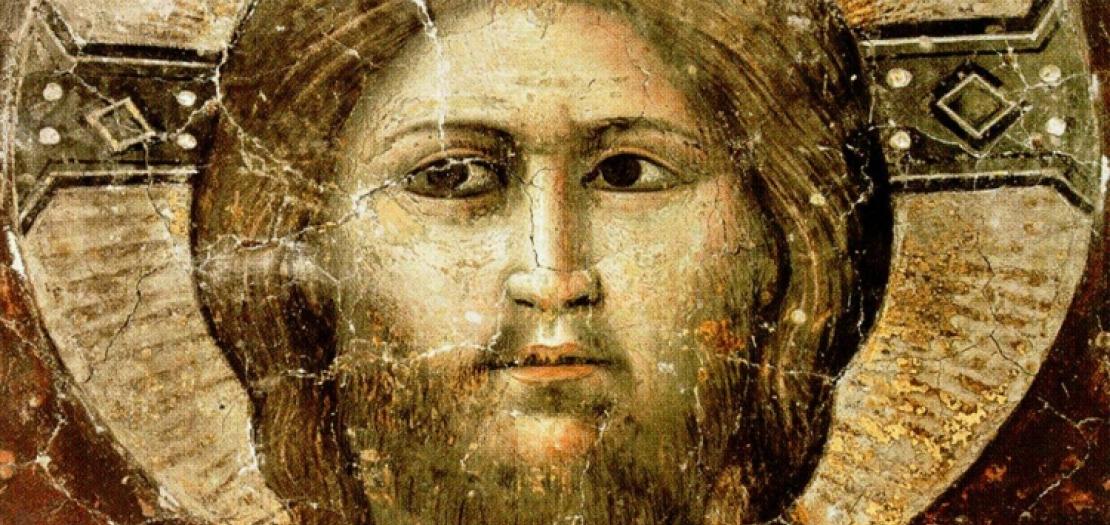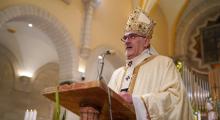Issued by the Catholic Center for Studies and Media - Jordan. Editor-in-chief Fr. Rif'at Bader - موقع أبونا abouna.org

Following is the text of meditation by Cardinal Pierbattista Pizzaballa, Latin Patriarch of Jerusalem for the 26th Sunday of ordinary time, dated September 29, 2024:
This Sunday’s Gospel (Mark 9:38-43, 45, 47-48) consists of two events that appear to have little in common.
Initially, we witness the disciples' frustration due to seeing a group of people, who did not belong to their circle, casting out demons in Jesus' name. (Mark 9:38-41) Mark recounts that John approaches Jesus to report the situation and expresses their desire to stop them from doing so.
In the second part, we hear Jesus speak about the seriousness of causing scandal, specifically addressing those who create obstacles to the faith of the little ones. (Mark 9:41-43, 45, 47-48)
A key to understanding this is found in a phrase that appears multiple times in the second part: it is the expression Jesus uses to describe the ultimate goal of the journey we are all called to—"to enter into life" or "to enter the kingdom of God". (Mark 9:43, 45, 47)
This is the Father's will and God's gift: that we enter into life, live it to the fullest, and offer it in love, just as Christ did.
Last Sunday, we learned that our lives can be lived fully and beautifully when we embrace the standards of the Gospel, which reject the notions of greatness and power. Instead, we are called to receive and express gratitude for all things, much like children.
In both parts of today's Gospel, we find an element that somehow has something to do with this Journey, the one that leads into life.
In the first part, we see that the disciples are convinced that they have the exclusive right to decide who can enter and who cannot, who belongs to the Kingdom and who does not, who can work in the name of Jesus, and who cannot: according to them, no one can cast out demons except those who belong to the close circle of disciples.
In response to this attitude, Jesus instructs His disciples to adopt a different perspective.
It is not a matter of perceiving who is in and who is out, but rather learning to recognize the good wherever it is found.
Taking action against evil doesn't mean excluding those who haven't sought permission to do good or who aren't part of our group, as if we hold some exclusive authority.
Jesus seems to be saying that whoever fights against evil, like that fellow who casts out demons, automatically takes his side, and fights the same battle.
If we learn to look, we will be amazed at the many gestures of good that flourish freely outside our narrow circle. And the first beneficiaries of this good will be us, the disciples, to whom anonymous benefactors can give a glass of water, just because we are his. (‘Anyone who gives you a cup of water to drink because you belong to Christ, amen, I say to you, will surely not lose his reward.’) (Mark 9:41)
The second part of the Gospel takes us a step further. To enter into life, Jesus requires separation, detachment, a loss.
The separation that needs to be made is not about those who are not part of our group. Instead, it is a separation within ourselves, as we are called to quickly remove anything that stands against the dual call to reject evil and embrace kindness.
Here, Jesus once again challenges the religious mindset of His time, which held that only perfect animals could be sacrificed and only those without disabilities could enter God's presence in the temple. The blind, the lame, and the sick were excluded and cut off.
But Jesus presents the opposite view: one enters into life even with imperfections, because God does not desire perfection, but wholeness. We become whole when we can receive the Father's mercy as a gift, or accept the glass of water from a brother—allowing our imperfections to become an opening that welcomes the goodness around us.
+Pierbattista







